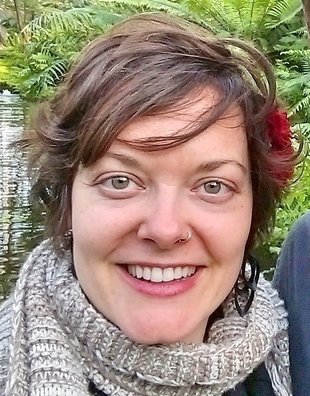 from Advent, actually ...The sacredness of marginalized people shines in the genealogy of Jesus. Like any other genealogy of the Bible, “so-and-so begat so-and-so…,’ Jesus’ genealogy is virtually all men. Our Advent scriptures recall prophecies about the messiah coming from the lineage of King David, a royal line. However, Jesus breaks tradition, in the record of his genealogy and in countless other ways. Tamar, Rahab, Ruth, Bathsheba and Mary are each named in his lineage. Read it in the opening chapter of Matthew. Now these are not just any women – these are each women in the midst of tumultuous circumstances: * Tamar’s husbands keep dying, and she tricks their father into giving her financial and familial support through the Levirate law that he is avoiding * Rabab is a Canaanite – an enemy of the Israelites, as well as a prostitute, and she rescues Israelite spies * Ruth is a Moabite – looked down on by Israelites – and after her husband dies she partners with her mother-in-law Naomi and they forge an untraditional life together * Bathsheba is married to a Hittite and gets pregnant through rape by King David * Mary is young, unmarried and pregnant, with a strange and shocking story about God The women honored to be named in Jesus’ lineage remind us that those on the margins bring unique vision and transformative power to our communities. We each bring our own marginalization to this church – our financial insecurities, our family instabilities, our physical infirmities. Even those of us who have mainstream privileges through our race or gender or education level or sexuality or wealth, each one of us carries edges, margins, there are ways that every one of us has been excluded by mainstream society. When we get in touch with those edges, we’re ready to fully be at church, at Christ’s table, in the Kingdom of God. When we get in touch with our own edges we understand how to welcome others with compassion. And more than merely welcoming the Other, we must expect to be changed by the Other. Jesus is shaped by these marginalized women – who would he be without these foremothers? Would he save us as he does? These people on the margins, the edges, of society are at the very center of scripture’s stories. And by telling these stories, we recall that those on the margins in Jesus’ time had gifts of wisdom and love – a bottle of precious oil, a widow’s two small coins, a bucket and a lot of baggage at a Samaritan well – by telling these stories, we know that those on the margins are not people to be pitied or fixed or saved. These are people to listen to, to watch, to follow, because their edges – the ways they are on the margins – give them essential and unique gifts for this world. These stories are told because they come from the edges of society, where generosity is an act of faith in the midst of poverty, where disclosure is an act of courage in the midst of shame. When we think of our edges, the ways we live in the margins, we quickly think of oppression, prejudice, and harm. We want to get rid of the reasons for edges. This is abundantly easy to see when it comes to race. If I handed you a book about “race”, what would you think that meant? Probably you would expect the book to be about racism. If we decided to have a Sunday school series about “race” we would end up talking about racism. We can barely even think the concept of race without thinking of racism. No wonder many scholars and young people and educators now argue that we should strive for a color-blind society, in which the concept of race becomes meaningless. Color-blindness isn’t a new idea, but it is gaining traction. Over 100 years ago, the scholar W E B Du Bois countered this same suggestion. He argued against the idea that black Americans’ “sole hope of salvation lies in our being able to lose our race identity in the commingled blood of the nation; and that any other course would merely increase the friction of races which we call race prejudice.”1 Doesn’t this sound familiar? Just stop talking about the things that make us uncomfortable – you have basic civil rights, at least on paper, so keep quiet about slavery, institutional racism, police brutality, and the fear you feel living in a white world. Du Bois knows that race is more than racism, that difference is more than inequality. We struggle to talk about this, though. We’ve all heard lip-service given to the importance of diversity – that it makes our workplaces and communities stronger. This sounds good, but what does it really mean? We stay in the safe vagueness because difference is dangerous to talk about....
0 Comments
Leave a Reply. |
Archives
January 2022
|

 RSS Feed
RSS Feed